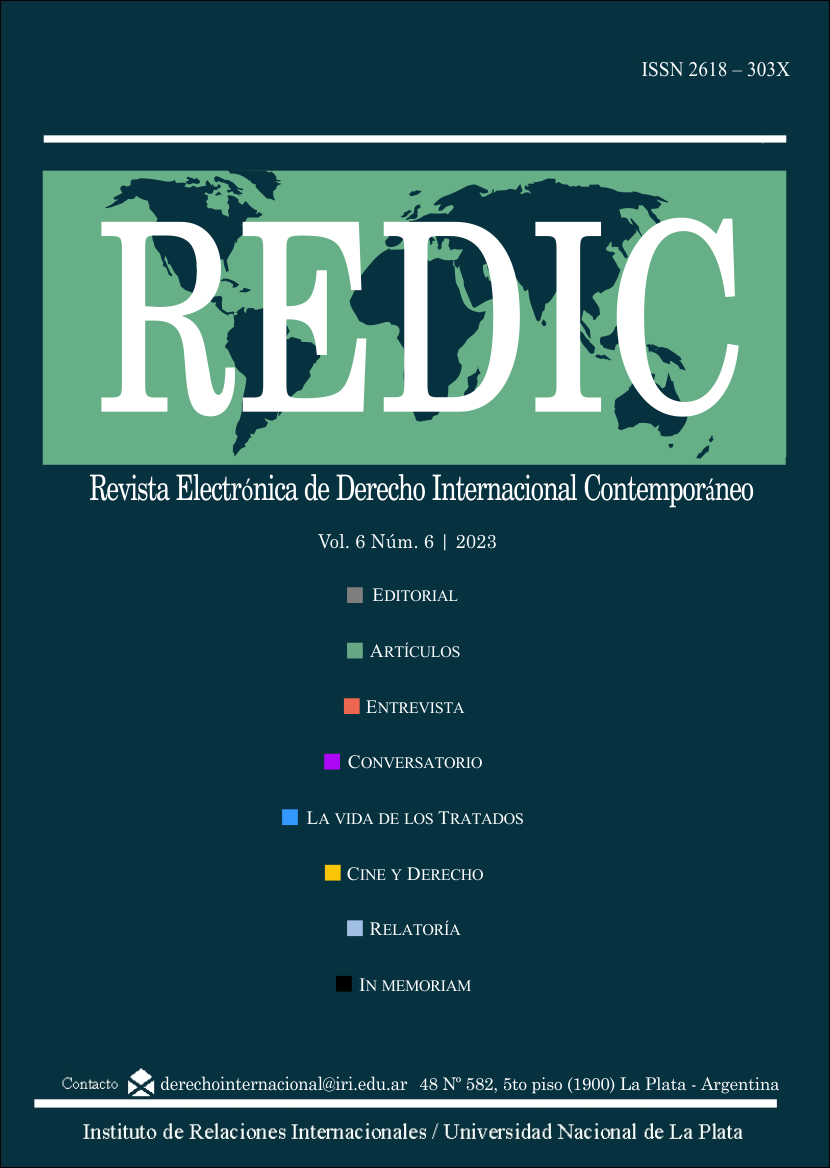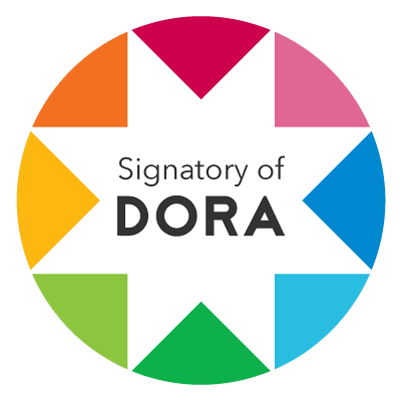The Rwandan genocide as seen in "Hotel Rwanda"
DOI:
https://doi.org/10.24215/2618303Xe051Keywords:
human rights, genocide, criminal international law, individual criminal liabilityAbstract
Films, as a form of social expression, cannot remain untouched by the legal sphere. From a critical perspective, they portray the laws of a society −or lack thereof−; they are the silent witnesses of events that shake the film industry and even at times become the voices through which unfair practices are exposed. By revealing social issues, their greatest contribution lies on their taking on realities to effect changes. When it comes to the historical genre, recalling armed conflicts helps create a collective memory which may aid in understanding such contexts as those fostering the commission of international crimes.
In this article, we will look at how a successful Hollywood film has raised awareness about genocides and, simultaneously, triggered international political events in which film stars, such as Scarlett Johansson and Don Cheadle, mingle with politicians, like President Biden, democratic and republican leaders, and Rwandan President Kagame. The plot, through the voice of a hero, tells the story of Rwanda's genocide, which in just three months took the lives of almost one million people. Using a qualitative methodology and descriptive-analytical methods, we analyze three relevant scenes and assess the efficiency of human rights international law, its material restrictions, and victims' rights and participations in international justice proceedings. In this simple research article, we attempt to show the connection that exists between films, politics and the law.
Downloads
References
Arendt, H. (1951). The origins of the totalitarianism. Harcourt Brace Jovanovich, Inc.
Bourdon, W. (2002). Les victimes et les procédures pénales: leurs places et les moyens de faire valoir leurs droits. En S. Gaboriau y H. Pauliat (Eds.), La justice pénale internationale (pp. 207-219). PULIM.
Cancado Trindade, A. A. (2011). The access of individuals to international justice. Oxford University Press.
Delgado Parra, C. (2020). Atisbos del “cosmopolitismo crítico” en la Corte Interamericana de Derechos Humanos. Andamios, 17(42), 89-120. https://doi.org/10.29092/uacm.v17i42.736
Deutsche Welle (23 de junio de 2023). Marina EE.UU. detectó implosión del Titan el domingo pasado. https://p.dw.com/p/4Sy5F
Donnard, G. (2002). Comment les victimes vivent-elles les procédures. Est-ce que le procés penal contribue á restaurer leur identité blessée? En S. Gaboriau y H. Pauliat (Eds.), La justice pénale internationale. PULIM.
El Español (8 de abril de 2023). Rusesabagina, el héroe de 'Hotel Ruanda', es liberado tras tres años en prisión. https://www.elespanol.com/mundo/20230408/rusesabagina-heroe-hotel-ruanda-liberado-anos-prision/754674527_0.html#:~:text=E.%20I.,por%20cargos%20de%20%22terrorismo%22
Gourevitch, P. (1998). We wish to inform you that tomorrow we will be killed with our families. Picador.
Koh, H. H. (1998). The 1998 Frankel lecture: bringing international human rights home. Houston Law Review, 35, 623-680. http://hdl.handle.net/20.500.13051/1395
Nzanzuwera, F. X. (2002). Le Rwanda: une justice imparfaite. En S. Gaboriau y H. Pauliat (Eds.), La justice pénale internationale (pp. 229-233). PULIM.
Papadimas, L. y Prousalis, S. (16 de junio de 2023). Greece scours shipwreck site; hundreds feared drowned in boat's hold. Reuters. https://www.reuters.com/world/europe/greece-hunts-survivors-migrant-shipwreck-least-78-dead-2023-06-15/
Walsh, D., Shear, M. y Latif Dahir, A. (6 de abril de 2023). El héroe de ‘Hotel Rwanda’ fue liberado. Así se logró. The New York Times. https://www.nytimes.com/es/2023/04/06/espanol/hotel-rwanda-rusesabagina-ruanda.html
Zegveld, L. (2003). Remedies for victims of violations of international humanitarian law. International Review of the Red Cross, 851. https://www.icrc.org/en/doc/resources/documents/article/other/5srelt.htm
Additional Files
Published
How to Cite
Issue
Section
License
Copyright (c) 2023 Favio Farinella

This work is licensed under a Creative Commons Attribution-NonCommercial-ShareAlike 4.0 International License.
Aquellos autores/as que tengan publicaciones con esta revista, aceptan los términos siguientes:
- Los autores/as conservarán sus derechos de autor y garantizarán a la revista el derecho de primera publicación de su obra, el cuál estará simultáneamente sujeto a la Licencia de reconocimiento de Creative Commons (BY-NC-SA) 4.0 que permite a terceros compartir la obra siempre que se indique su autor y su primera publicación esta revista, no se haga uso comercial, y si se remezcla, se transforma o se crea a partir del material, se debe distribuir bajo la misma licencia del original.
- Los autores/as podrán adoptar otros acuerdos de licencia no exclusiva de distribución de la versión de la obra publicada (p. ej.: depositarla en un archivo telemático institucional o publicarla en un volumen monográfico) siempre que se indique la publicación inicial en esta revista.
- Se permite y recomienda a los autores/as difundir su obra a través de Internet (p. ej.: en archivos telemáticos institucionales o en su página web) antes y durante el proceso de envío, lo cual puede producir intercambios interesantes y aumentar las citas de la obra publicada. (Véase El efecto del acceso abierto).





















